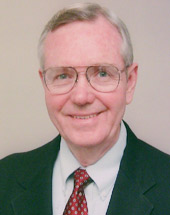Roger Sullivan, PhD

Roger J. Sullivan, PhD, is an adjunct research staff member at the Institute for Defense Analyses (IDA), a nonprofit corporation that operates three federally funded research and development centers in the public interest: the Systems and Analyses Center, the Science and Technology Policy Institute, and the Center for Communications and Computing, where he provides advice concerning BMD radars.
Additionally, while at the IDA, Roger has advised the U.S. government concerning SAR and ground-moving target indication (GMTI) radars on unmanned aerial vehicles (UAVs), especially the Global Hawk, and he has performed analyses concerning new radar concepts for ballistic missile defense (BMD).
Previously, at the Illinois Institute of Technology Research Institute (IITRI) Roger advised NASA on potential future lunar and planetary scientific missions. At System Planning Corporation he participated in strategic arms analyses and helped develop new techniques for inverse synthetic aperture radar (ISAR) for moving targets. At the Environmental Research Institute of Michigan (ERIM) he served as program manager for development of an X/C/L-band polarimetric synthetic aperture radar (SAR) and led analyses concerning SAR performance and automatic target recognition. From 2003 to 2007, Roger served as senior technical advisor to the Missile Defense Agency, Project Hercules, which was responsible for developing new target discrimination algorithms.
Roger is the author of the book, Radar Foundations for Imaging and Advanced Concepts, 2004, published by SciTech and available at Amazon.com. He is also the author of Chapter 17 on SAR for the third edition of the Radar Handbook, edited by Dr. Merrill Skolnik, McGraw-Hill, 2008. With the support of his Fannie and John Hertz Foundation Fellowship, Roger received a PhD in physics from the Massachusetts Institute of Technology, with a thesis in x-ray astronomy titled, “Search for Extragalactic X-Rays”.